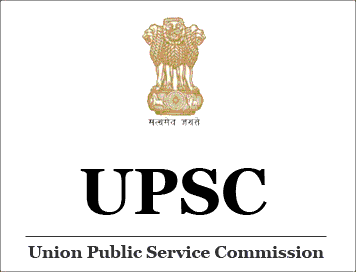UPSC Recruitment Paper 2019 : Assistant Legal Adviser in Enforcement Directorate
UPSC Recruitment Paper 2019 : Assistant Legal Adviser in Enforcement Directorate
1. Match List I with List II and select the correct answer using the code given below the Lists:
List I List II
(Power as mentioned in Article 72 (Explanation)
of the Constitution of India)
A. Pardon 1. Postponement of execution of sentence to the future
B. Reprieve 2. It merely substitutes one form of punishments for another with a lighter character
C. Commutation 3. It rescinds both the sentence and the conviction and absolves the offender from all punishment and disqualification
D. Respite 4. A temporary suspension of the punishment fixed by law
Code:
A B C D
(a) 1 2 4 3
A B C D
(b) 3 4 2 1
(c) A B C D
3 2 4 1
(d) A B C D
1 4 2 3
2. The subject of Bankruptcy and Insolvency are covered under which one of the following entries and lists of the Seventh Schedule of the Constitution of India?
(a) Entry 9, Concurrent List
(b) Entry 9, Union List
(c) Entry 45, Concurrent List
(d) Entry 45, Union List
3. “Constitutional safeguards to civil servants” is explained under which Parts and Articles of the Constitution of India?
(a) Part V, Article 74
(b) Part XIV, Article 311
(c) Part XIV, Article 312
(d) Part XIV, Article 312A
4. Under which one of the following Articles of the Constitution of India, a Review Petition could be filed against any judgement or order of the Supreme Court of India?
(a) Article 133
(b) Article 136
(c) Article 137
(d) Article 138
5. On which of the following grounds, the Supreme Court of India may entertain the Curative Petition while exercising its wide powers?
(a) Non-observance of the principles of natural justice and abuse of the process of the court
(b) Violation of rights of accused
(c) Condonation of delay
(d) Principle of prospective over-ruling
6. Which fundamental right CANNOT be enforced in Court during the emergency if suspended by the President?
(a) Right to life
(b) Right to religion
(c) Right not to be prosecuted and punished for the same offence more than once
(d) Right against self incrimination
7.Which one of the following is NOT explicitly stated in the amendment procedure laid down in Article 368 of the Constitution of India?
(a) Simple majority in either House of the Parliament
(b) Special majority of not less than two-thirds of the members present and voting in either House of the Parliament
(c) Ratification by resolution passed by not less than one-half of the State Legislatures in addition to special majority
(d) The President may give his assent to the Bill or may return the bill for reconsideration of the Houses of Parliament
8.Which is the suitable expression for “Right to Vote”?
(a) It is obligatory in nature
(b) It is mandatory in nature
(c) It is moral in nature
(d) It is statutory in nature
9.Which of the following is NOT deemed to be the Constitutional Power of the President of India?
(a) Dissolving both the Houses of Parliament
(b) Proroguing both the Houses of Parliament
(c) Addressing both the Houses of Parliament
(d) Granting pardons
10.Consider the following statement:
“The decision declaring some of the provisions of the Act to be invalid does not affect the validity of the Act as it remains”
Which one amongst the following principles of the Constitution of India does the above statement refer to?
(a) Principle of Eclipse
(b) Principle of Waiver
(c) Principle of Colourable Legislation
(d) Principle of Severability
Click Here to Download Full Paper PDF
Printed Study Material for UPSC Exams
Courtesy : UPSC



